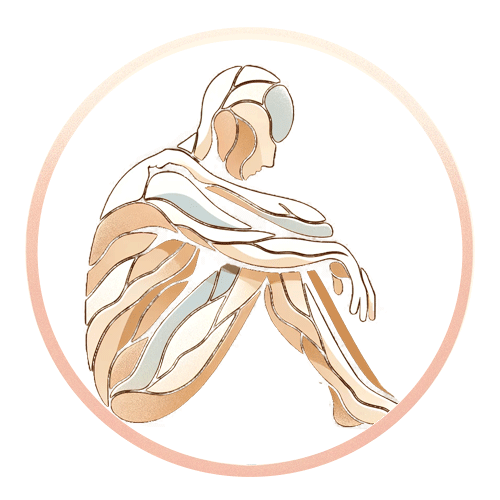Dehydrationaccording to TCM
Symptom family: Thirst and Hydration
Root Causes of Dehydration in TCM
Explore below more details about what might cause Dehydration according to TCM.
- By Syndrome
- Body Fluids Deficiency

Body Fluids Deficiency
In TCM a deficiency of body fluids indicates an imbalance where the body lacks sufficient Yin fluids, which are crucial for lubrication and nourishment. This condition often results from prolonged illness, overexertion, or consuming too many drying or heating foods. Symptoms of body fluid deficiency can include dryness in the skin, eyes, mouth, and throat, as well as a dry cough, constipation, and a feeling of thirst. Additionally, there might be more subtle signs like a dry tongue, a thin pulse, and a general sense of fatigue or weakness. This pattern of disharmony reflects an underlying insufficiency in the body's ability to generate and maintain essential fluids, which are vital for the proper functioning of organs and systems.... see more
Body Fluids Deficiency Patterns That Can Lead to Dehydration
| Pattern Name | Relevant Symptoms | Relevant Formulas |
|---|---|---|
| Body Fluids Deficiency | Dehydration, Skin dryness, Dry mouth, Dry nose, Dry cough, Dry lips, Dry tongue, Dry throat, Dry stools... see more | Xing Su San | Bai He Gu Jin Tang | Zeng Ye Tang |
TCM Herbal Formulas for Dehydration
Explore below some TCM herbal formulas used to address dehydration, organized by cause and by formula type.
- By Cause
- By Formula Type
- Body Fluids Deficiency
- Formulas that disperse dryness and moisten
- Formulas that nourish yin and tonify
- Formulas that enrich yin and moisten dryness

Top Formula for Body Fluids Deficiency:
Xing Su San
Suitable for Body Fluids Deficiency patterns that may cause dehydration, such as Body Fluids Deficiency
Learn moreAll Formulas Recommended for Dehydration Caused by Body Fluids Deficiency
| Formula | Patterns Suitable For |
|---|---|
| Xing Su San | Body Fluids Deficiency |
| Bai He Gu Jin Tang | Body Fluids Deficiency |
| Zeng Ye Tang | Body Fluids Deficiency |
Formulas that disperse Dryness and moisten
These formulas are suitable for some dehydration-causing patterns like Body Fluids Deficiency.
One such formula is Xing Su San, with apricot seed as a key herb.
Formulas that nourish Yin and tonify
These formulas are suitable for some dehydration-causing patterns like Body Fluids Deficiency.
One such formula is Bai He Gu Jin Tang, with lily bulb as a key herb.
Formulas that enrich Yin and moisten Dryness
These formulas are suitable for some dehydration-causing patterns like Body Fluids Deficiency.
One such formula is Zeng Ye Tang, with ningpo figwort root as a key herb.
TCM Herbs for Dehydration
Explore below some TCM herbs used to address dehydration, organized by herb category.
- By Herb Category
- Herbs that cool the blood
- Herbs that clear heat and purge fire and/or clear summer heat
- Tonic herbs for qi deficiency
- Herbs that relieve coughing and wheezing
- Warm/Acrid herbs that release the exterior
- Tonic herbs for yin deficiency
- Tonic herbs for blood deficiency
Herbs that cool the Blood
Dehydration can be treated by these herbs when it is a consequence of excess heat in the blood, helping to cool and detoxify the blood.
One such herb is Unprepared Rehmannia (Di Huang), a key herb in some formulas recommended for dehydration, like Bai He Gu Jin Tang.
Other herbs of this category are listed in the table below.
"Herbs that cool the Blood" recommended for dehydration
| Herb | Formulas they belong to (if applicable) |
|---|---|
| Unprepared Rehmannia (Di Huang) | Bai He Gu Jin Tang |
| Ningpo Figwort Roots (Xuan Shen) | Zeng Ye Tang |
Herbs that clear Heat and purge Fire and/or clear Summer Heat
Dehydration can be treated by these herbs when it arises from excessive internal heat or fire, aiding in cooling the body and balancing internal temperature.
One such herb is Common Reed Rhizomes (Lu Gen), which is directly recommended for dehydration.
Tonic herbs for Qi Deficiency
Dehydration can be treated by these herbs when stemming from a lack of vital energy or Qi, helping to boost energy and overall vitality.
One such herb is Ginseng (Ren Shen), which is directly recommended for dehydration.
Herbs that relieve coughing and wheezing
Dehydration can be treated by these herbs when it originates from obstructions in the lung pathways, helping to ease respiratory discomfort and restore normal breathing.
One such herb is Apricot Seeds (Xing Ren), a key herb in some formulas recommended for dehydration, like Xing Su San.
Warm/Acrid herbs that release the Exterior
Dehydration can be treated by these herbs when there is a need to dispel external cold and warm the body, especially in cases where there is insufficient Yang energy internally.
One such herb is Perilla Leaves (Zi Su Ye), a key herb in some formulas recommended for dehydration, like Xing Su San.
Tonic herbs for Yin Deficiency
Dehydration can be treated by these herbs when caused by a lack of Yin, which is essential for cooling and moistening the body, thereby restoring balance.
One such herb is Lily Bulbs (Bai He), a key herb in some formulas recommended for dehydration, like Bai He Gu Jin Tang.
Tonic herbs for Blood Deficiency
Dehydration can be treated by these herbs in cases of blood deficiency, working to nourish and replenish the body's blood supply.
One such herb is Prepared Rehmannia (Shu Di huang), a key herb in some formulas recommended for dehydration, like Bai He Gu Jin Tang.
